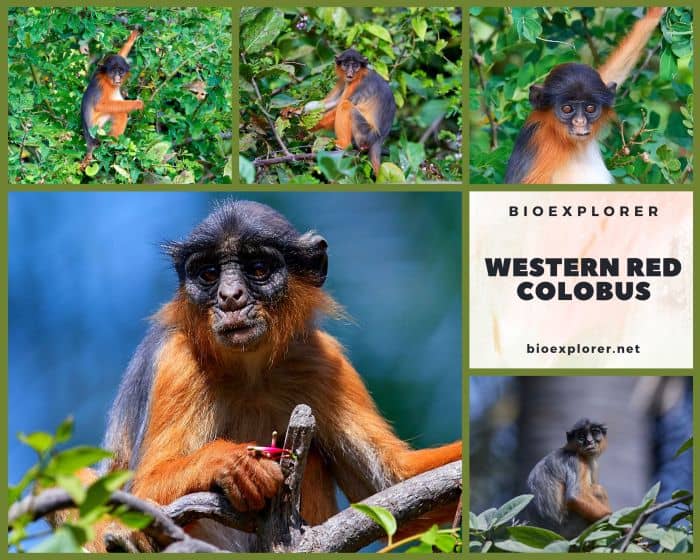
| Animalia | Primates | Cercopithecidae | Piliocolobus | Piliocolobus badius |
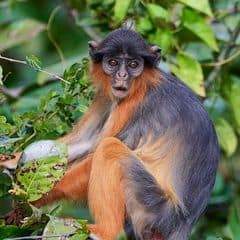

- Common Names: Western Red Colobus, Upper Guinea Red Colobus, Rust Red Colobus, or Bay Red Colobus
- Taxonomy Classification Year: 1792
- Monkey Size: 97 to 147 cm (38.19 to 57.87 in)
- Skin Color(s): Brown, grey or black
- Habitat: Forest, rainforest
- Diet: Herbivorous
- Native Countries: Ivory Coast, Gambia, Guinea, Guinea-Bissau, Liberia, Senegal, Sierra Leone
Upper Guinea Red Colobus Distribution
Western Red Colobus Characteristics
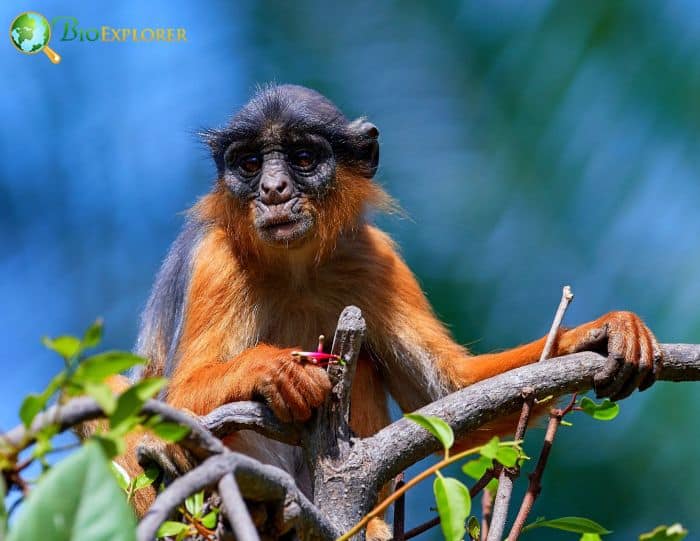
The western red colobus[1] (Piliocolobus badius), also called the Upper Guinean red colobus, rust red colobus, or bay red colobus is a species of Old-World monkey found in the forests of West Africa, from Senegal to Ghana.
- All other species of red colobus monkeys were previously considered subspecies of Piliocolobus badius.
- Western red colobus monkeys look like a previously completely black monkey that had an irreversible, if not unfortunate, accident with a large amount of red iron oxide dust.
- Their bodies are tan, black, or gray, and their furry appendages and cheeks are rich with striking reddish-brown fur.
- They have distinctive hairless T-shaped faces reminiscent of the hugely popular alien E. T. and a pair of expressive almond-shaped eyes.
- Large, round ears protrude from the thick hair that lines their heads, and their long, intangible tails often hang down from the branches below.
- Perhaps the most notable feature of the western red colobus is what it lacks: thumbs!
- A stump replaces what could have been the digit number five. However, the western red colobus compensates for this with long, dexterous fingers it uses to grasp, a helpful trait for a creature that uses brachiation as a common form of locomotion.
What Do Upper Guinea Red Colobus Monkeys Eat?
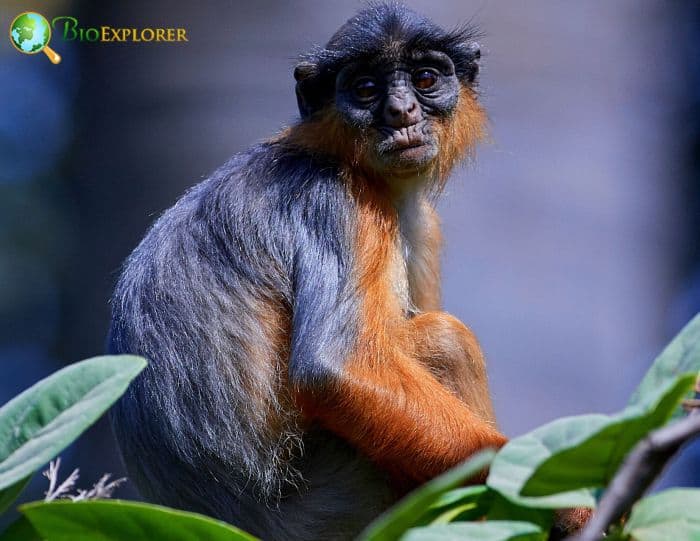
As documented in the African Journal of ecology, the Upper Guinea Red Colobus nourishes on these food sources[¶]:
- Velvet Tamarind (Dialium guineense).
- African Locust-Bean (Parkia bicolor).
- African Nutmeg (Pycnanthus angolensis).
- Boleko Nut (Ongokea gore).
- Persimmons (Diospyros)
- Raphia Palm (Raphia africana).
What Eats Upper Guinea Red Colobus Monkeys?
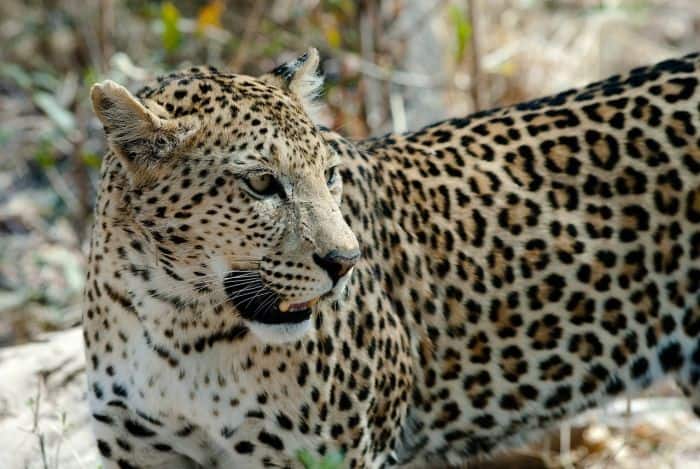
In the wild, leopards (Panthera pardus) predate Upper Guinea Red Colobus[§] among other monkey species.
Western Red Colobus Facts
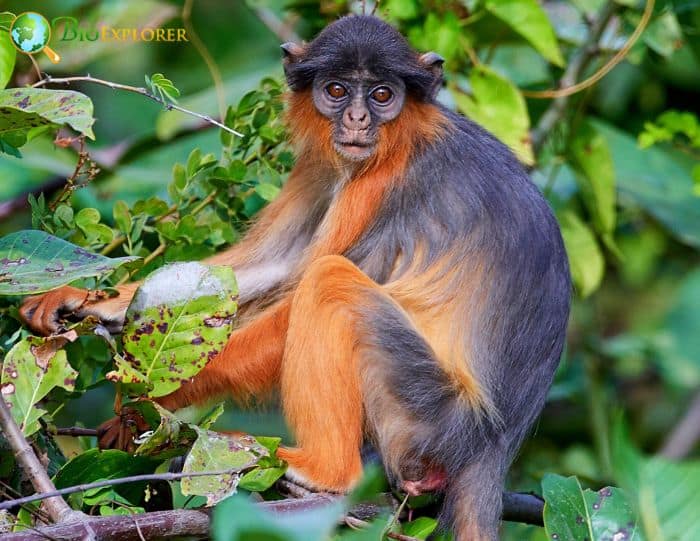
- They are found at all levels of the forest canopy, from ground level to level 5 (i.e., tree canopy develops higher than 40 m (130 ft) above the ground).
- Western red colobus monkeys are incredibly agile, moving on four legs through trees or by brachiation.
- Western Red Colobus Monkeys use vocalizations to communicate. Their repertoire consists of alarm calls, which vary in duration depending on the impending threat.
- Females leave their natal group and move freely between groups of males who remain in their natal group.
- Western red colobus monkeys also display visual mimicry. For example, juveniles display pink genital swelling, similar to an adult female, to avoid confrontation with older, more prominent, and likely stronger males in the group.
Suggested Reading: Types of apes and Monkeys
Cite This Page
APA7MLA8Chicago
BioExplorer.net. (2025, October 17). Western Red Colobus. Bio Explorer. https://www.bioexplorer.net/animals/mammals/monkeys/western-red-colobus/.
BioExplorer.net. "Western Red Colobus" Bio Explorer, 17 October 2025, https://www.bioexplorer.net/animals/mammals/monkeys/western-red-colobus/.
BioExplorer.net. "Western Red Colobus" Bio Explorer, October 17 2025. https://www.bioexplorer.net/animals/mammals/monkeys/western-red-colobus/.











